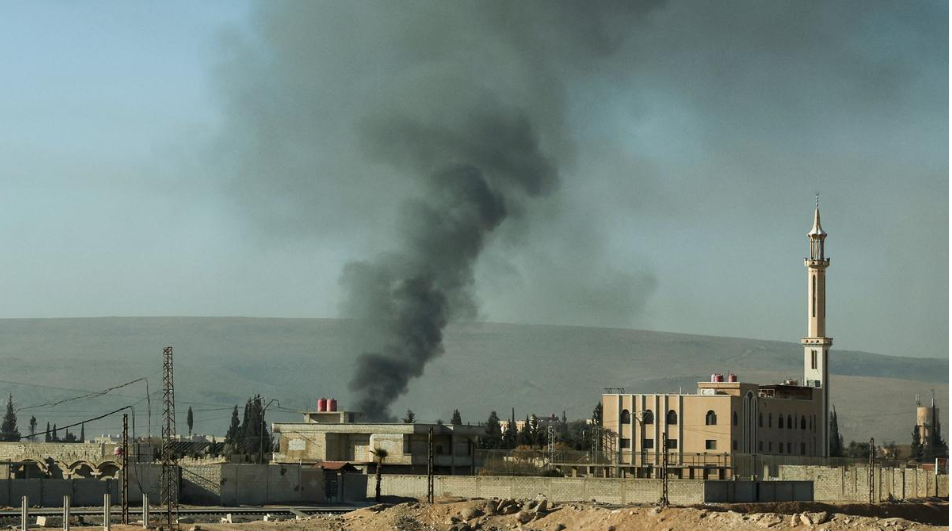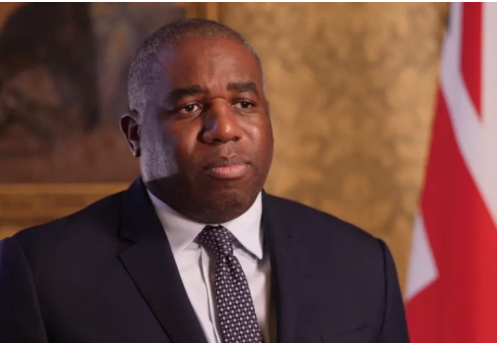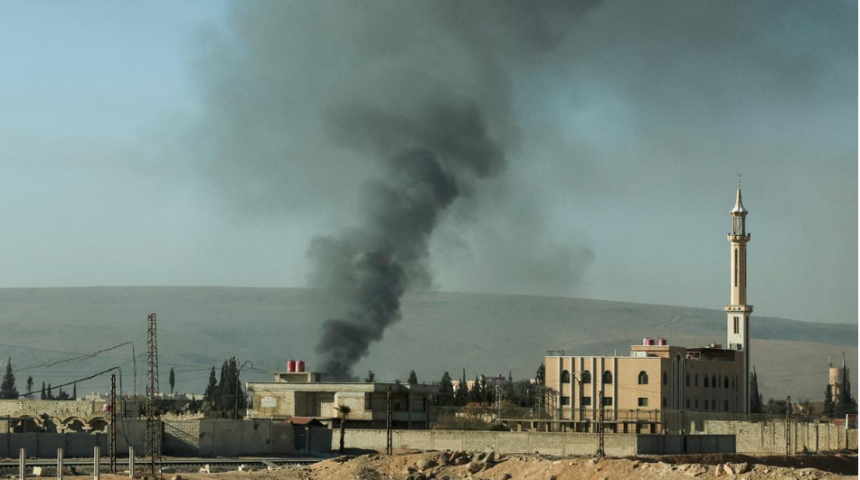1. Introduction: Diplomatic Outreach Raises Eyebrows
Engagement a move that has raised global attention, Britain has reportedly initiated “diplomatic contact” with Hayat Tahrir al-Sham (HTS), a prominent Islamist militant group in Syria. HTS, primarily operating in northwest Syria, has long been designated as a terrorist organization by many countries, including Britain itself. This revelation has sparked debates over the ethical and political implications of such engagement, its potential objectives, and the broader ramifications for counter-terrorism and Syria’s ongoing conflict.  For the more information click on this link
For the more information click on this link
2. Understanding HTS: A Complex Entity
To evaluate Britain’s decision, it is essential to understand Hayat Tahrir al-Sham’s evolution and role in Syria’s conflict:
- Origins: HTS emerged from Jabhat al-Nusra, an al-Qaeda affiliate, and has gradually repositioned itself as a dominant force in Idlib Province.
- Ambitions: Despite distancing itself from al-Qaeda, HTS remains committed to establishing an Islamist governance structure.
- Control: The group governs parts of northwest Syria, often with a blend of strict Islamist rule and administrative pragmatism.
HTS’s position as both a militant group and an administrative authority complicates its identity, making it a challenging entity for international actors.
3. Britain’s Contact: Unveiling the Motive
While specific details of Britain’s outreach remain unclear, possible motives can be inferred:
- Counterterrorism Cooperation
Britain may view contact with HTS as a way to secure intelligence on other, more extreme terror groups in the region, including ISIS remnants. - Humanitarian Access
With HTS controlling significant portions of Idlib, humanitarian aid distribution often requires coordination with the group to reach displaced populations and vulnerable civilians. - Political Stability
Britain could be exploring avenues to de-escalate violence in northwest Syria by engaging directly with HTS leaders.
This contact, however, is fraught with moral and strategic concerns that could backfire diplomatically.
4. Domestic Reactions: Support and Criticism
Britain’s engagement has triggered mixed responses domestically:
- Proponents of the Move
Advocates argue that such contact demonstrates pragmatic diplomacy, emphasizing the need to engage with all stakeholders to address pressing regional issues. - Criticism from Opponents
Many political leaders and human rights groups have criticized the government for engaging with a designated terrorist group, warning that it could legitimize HTS and undermine Britain’s anti-terrorism principles.
5. International Response: A Mixed Landscape
Britain’s diplomatic engagement with HTS has not gone unnoticed by the global community.
- U.S. Reaction
The United States, a key ally in counter-terrorism efforts, has yet to take an official stance, though any perceived legitimization of HTS would likely draw Washington’s criticism. - Syrian Government’s Stance
Damascus has condemned the move, labeling Britain’s engagement as a violation of Syria’s sovereignty and an act of “support for terrorism.” - Regional Concerns
Countries such as Turkey, which has influence over Idlib, and Iran, a key Assad ally, are closely monitoring the developments, wary of how it might alter dynamics in Syria.
6. Historical Precedents: When Governments Engage Extremist Groups
Britain’s contact with HTS fits into a broader pattern of governments engaging with groups once deemed off-limits. Historical examples provide context for this approach:
- The Taliban: Western powers negotiated with the Taliban to facilitate U.S. troop withdrawal from Afghanistan, despite its designation as a terror group.
- IRA in Northern Ireland: Secret negotiations between British authorities and the IRA contributed to the eventual peace process.
These cases illustrate the complexities and potential risks of negotiating with non-state actors.
7. Ethical and Political Dilemmas
Engaging with a group like HTS presents profound ethical and political challenges:
- Legitimization of Violence
Direct engagement risks lending HTS a veneer of legitimacy, potentially undermining global counter-terrorism efforts. - Moral Hazard
Some argue that any form of contact with terrorist organizations implicitly condones their violent tactics. - Long-Term Implications
The broader geopolitical consequences of this engagement, particularly for Britain’s credibility in the fight against terrorism, remain uncertain.
8. Syria’s Idlib: A Region in Crisis
To fully understand the context of Britain’s outreach, it is crucial to consider Idlib’s dire situation:
- Humanitarian Disaster
With millions of displaced Syrians living in the region, Idlib has become a hub of humanitarian crises, from food insecurity to lack of medical services. - Geopolitical Tensions
Idlib represents one of the last remaining opposition strongholds against the Assad regime, making it a flashpoint for international interventions. - HTS’s Role
As the de facto authority in Idlib, HTS wields significant control over aid distribution and local governance.
9. Critiques of Britain’s Approach
Several experts and analysts have voiced concerns over Britain’s move:
- Strategic Shortcomings
Critics argue that Britain risks undermining its counter-terrorism stance and alienating key allies who oppose HTS. - Domestic and Global Perception
Engaging with HTS could draw criticism from domestic audiences and other nations, damaging Britain’s international reputation.
10. Potential Outcomes: Risks and Benefits
The outcomes of Britain’s engagement with HTS are uncertain but can be framed through risks and potential benefits:
- Risks
- Strengthening HTS’s legitimacy as a governing force.
- Undermining Britain’s global anti-terrorism narrative.
- Benefits
- Enhancing humanitarian access and aid delivery to civilians in need.
- Improving counter-terrorism intelligence to pre-empt future threats.
11. Future of Diplomacy: New Paradigms or Missteps?
This engagement raises fundamental questions about the role of diplomacy in modern conflicts:
- Should Pragmatism Prevail?
The contact may reflect a shift towards pragmatic diplomacy, focusing on immediate humanitarian and strategic concerns. For the more information click on this link
For the more information click on this link - Redrawing Boundaries of Engagement
The move challenges traditional norms of state interaction with non-state actors.
12. Conclusion: The Complexity of Diplomacy in Conflict Zones
Britain’s decision to engage with Syria’s HTS underscores the complexities of navigating modern-day conflicts. While the move is controversial and fraught with ethical dilemmas, it may also represent a calculated attempt to balance security, humanitarian, and diplomatic priorities.
The international community, policymakers, and observers will closely watch how this engagement unfolds and its implications for Syria’s ongoing crisis and global counter-terrorism strategies. Regardless of the outcome, Britain’s diplomatic gamble highlights the intricate balancing act required in addressing today’s multifaceted conflicts. ALSO READ:- Syria Rebel Leader Meets U.N. Envoy in Damascus: Hope for Renewed Peace Talks 2024





